Development aid
All topics-
 Nassir Djafari's "Der Großcousin"
Nassir Djafari's "Der Großcousin"On the run
A man who has lost touch with his Iranian roots meets a distant relative fleeing to Germany at the height of the refugee crisis in 2015. "Der Großcousin", Nassir Djafari's third novel, makes for a thrilling and topical read
-
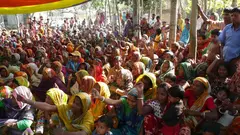 Bangladesh's low-wage textile industry
Bangladesh's low-wage textile industryMicrocredits – no silver bullet against poverty
While Grameen Bank, the great role model for the microfinance industry, is celebrating its fortieth birthday in 2023, tens of thousands of textile workers in Bangladesh are taking to the streets and striking for better wages
-
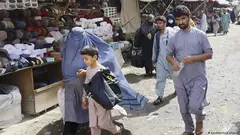 Taliban Afghanistan's double whammy
Taliban Afghanistan's double whammyAfghans face a failing economy and high taxation
Almost two years after the Taliban swept to power, other international crises have distracted attention away from Afghans' suffering amid the country's dire socioeconomic conditions. Looking ahead, Hameed Hakimi asks what are the economic prospects for Afghanistan under the Taliban?
-
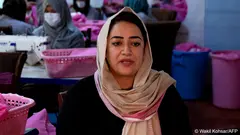 Four Afghans on two years Taliban rule
Four Afghans on two years Taliban ruleWorry, relief, pride, despair
Two years since the Taliban stormed back to power in Afghanistan after 20 years of war against the United States and its allies, life has changed dramatically for many Afghans, particularly women
-
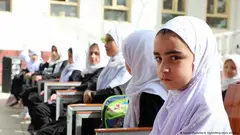 Development aid
Development aidDespite the Taliban, Afghanistan deserves help
For the sake of the Afghan people, the international community needs to re-engage in development cooperation. The education sector would be an ideal entry point, argue Conrad Schetter and Katja Mielke
-
 Education in Pakistan
Education in PakistanDigital learning for more opportunity
Pakistan's struggle with underinvestment in education and digitisation has resulted in high illiteracy rates and systemic discrimination. While some positive examples can be found in institutions catering for persons with disabilities, the overall picture remains bleak. By Marva Khan
-
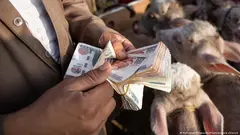 Economic crisis on the Nile
Economic crisis on the NileIs Egypt the 'new Lebanon'?
Food prices doubled, salaries halved, banks restricting withdrawals: Egyptians now have the same problems as the Lebanese. But if things get worse here, the fallout will be far more damaging. By Cathrin Schaer
-
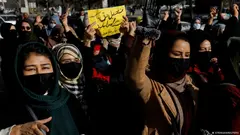 Women’s rights in Afghanistan
Women’s rights in AfghanistanThe Taliban cannot defeat women
Since returning to power in Afghanistan, the Taliban have steadily eroded the rights and opportunities of women and girls, particularly their access to education. But Afghans are not taking the regime's draconian policies lying down – and nor should the rest of the world. By Gordon Brown & Yasmine Sherif
-
 Qatar
QatarHow Qatar turns its cash into foreign policy power
For years, Qatar has pursued a "soft" foreign policy that helped make international friends and influence the powerful. It includes spending billions on everything from fashion, art and sport, to charities and industry. By Cathrin Schaer
-
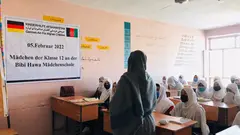 Afghanistan under the Taliban
Afghanistan under the Taliban"Girls continue to attend our schools"
Education for girls and women is still possible in Afghanistan, says Reinhard Eroes of the Kinderhilfe Afghanistan initiative. In interview with Elisa Rheinheimer, he talks about skewed media portrayals, the great hunger gripping the country and why aid organisations should return
-
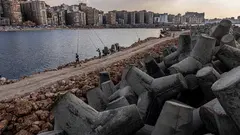 COP27 and the Middle East
COP27 and the Middle EastSinking Alexandria faces up to coming catastrophe
Alexandria, Egypt's fabled second city and its biggest port, is in danger of disappearing below the waves within decades.
-
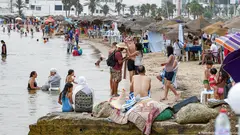 Climate change in the MENA
Climate change in the MENAWill North Africa's beaches disappear?
The southern shores of the Mediterranean Sea are losing sand faster than almost anywhere else. The ecological and economic damage is immense. The good news is, there are ways to cope. By Cathrin Schaer and Tarak Guizani